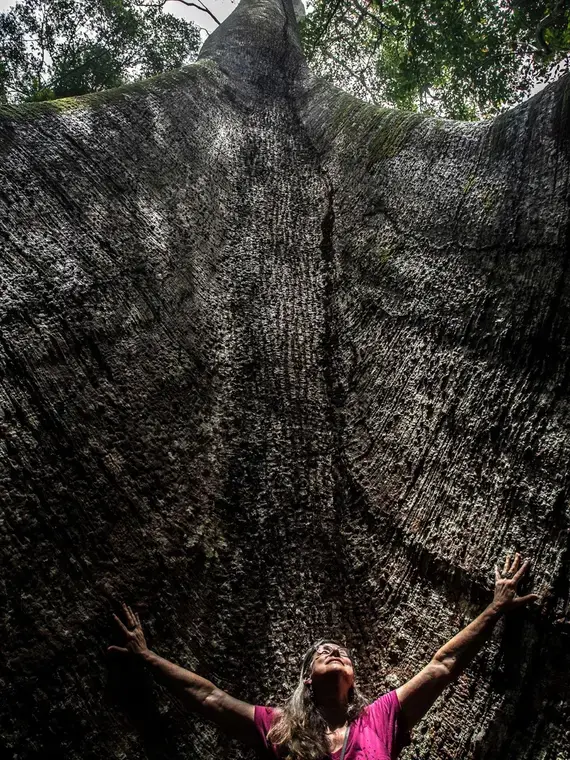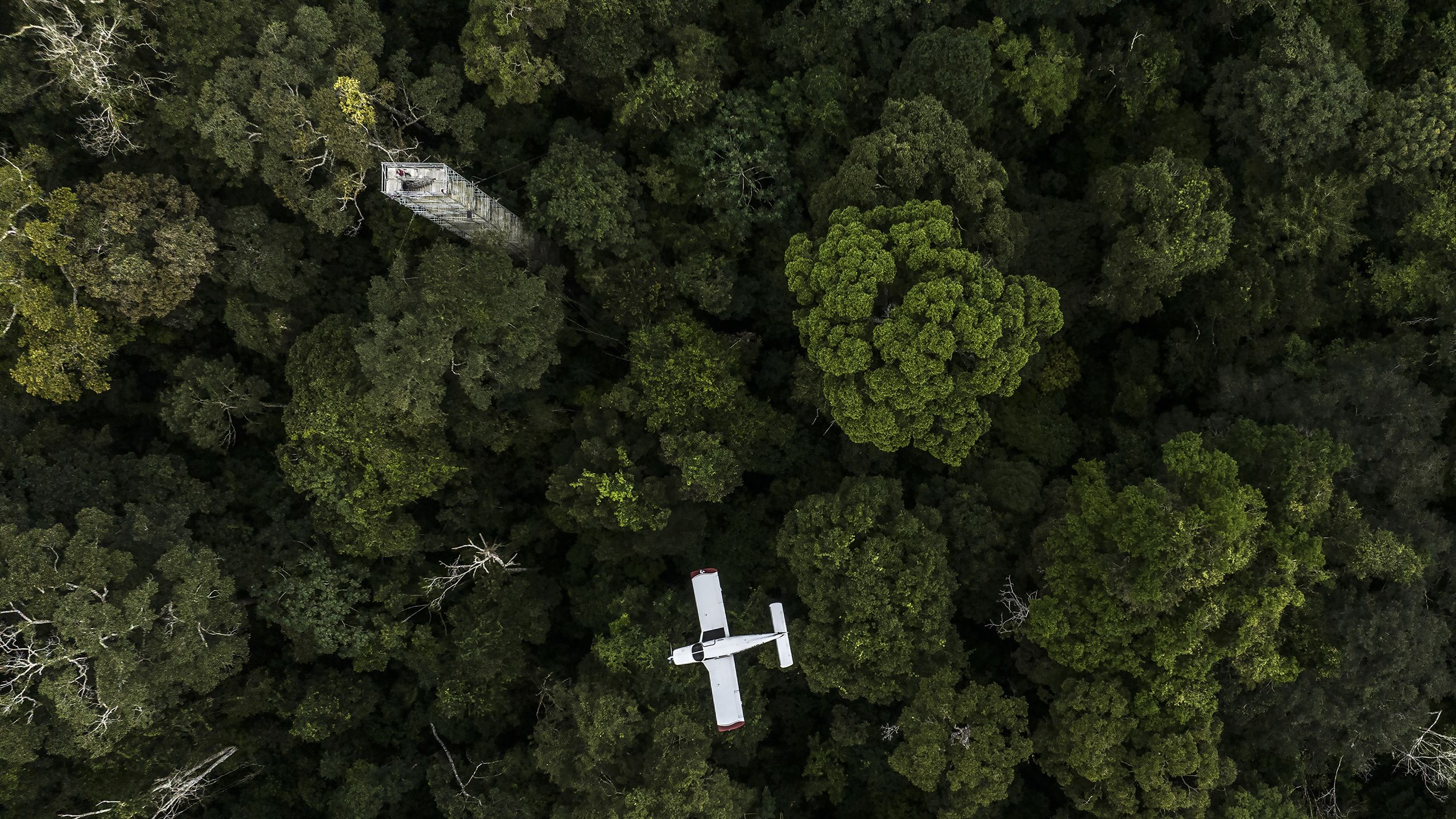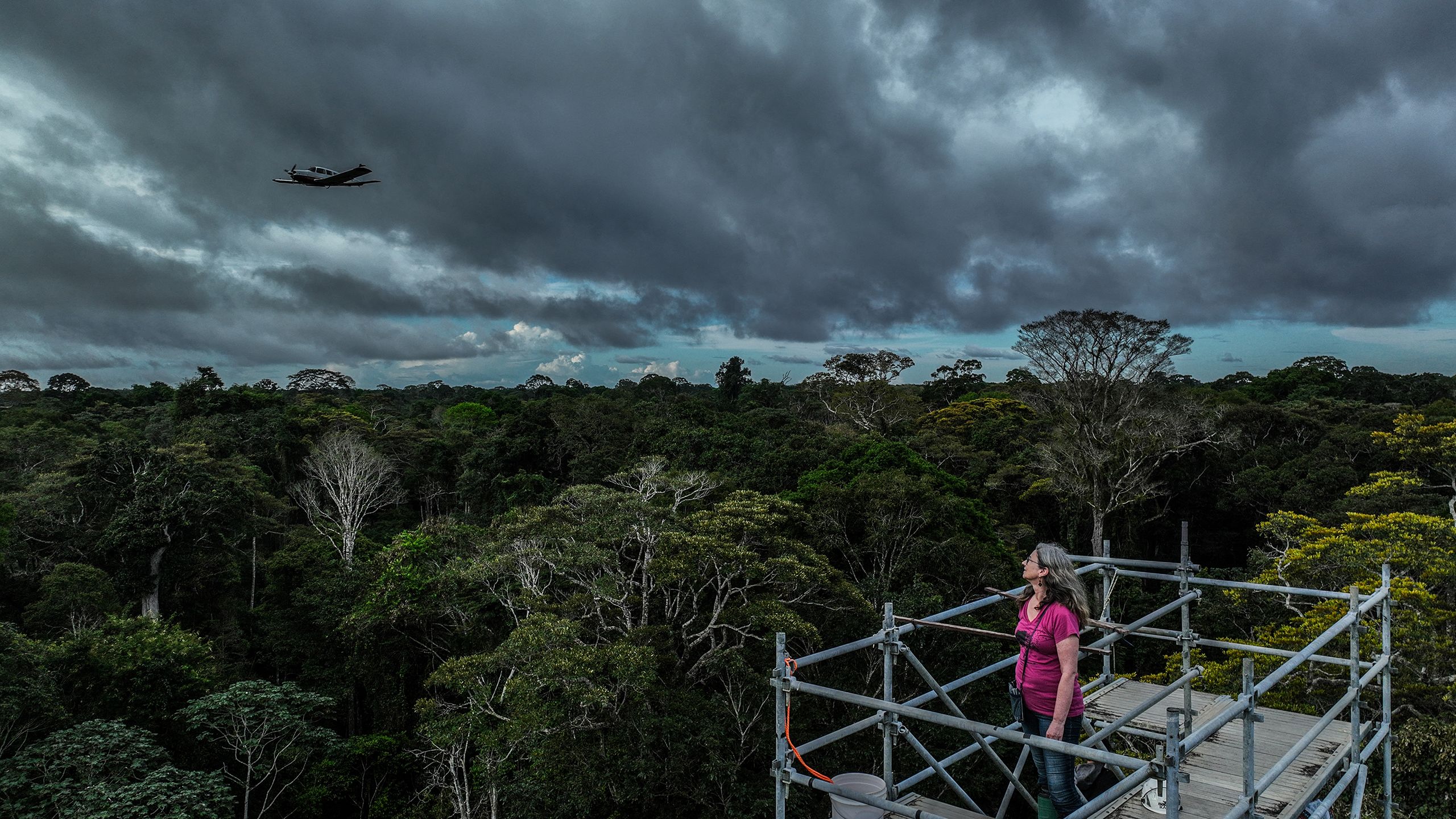Forests absorb 9 billion tons of carbon dioxide every year—one quarter of what humans release from tailpipes and smokestacks—slowing accumulation of the gas in the atmosphere. If not for this terrestrial carbon sink, the amount of CO2 in the air, and Earth’s temperature, would be increasing even faster.
By some estimates, tropical jungles are responsible for half of the terrestrial carbon sink. But this sink’s strength is in question, even if deforestation is brought under control. In coming decades, tropical forests are expected to experience warmer and drier weather, conditions detrimental to forest health, threating their capacity for CO2 uptake.
A research team is beginning an experiment that will test whether the growing amount of carbon dioxide in the air could counter the otherwise adverse conditions tropical forests will face. Carbon dioxide is known to benefit plants in laboratories and greenhouses, a phenomenon known as carbon dioxide fertilization. But the effect hasn’t been tested under national conditions in any tropical forest.
Most climate models presume that tropical carbon uptake will benefit from CO2 fertilization. If this assumption is wrong, temperature forecasts will have to be revised upwards, increasing the urgency of responding to the climate crisis. The experiment consists of circular forest plots the size of basketball courts surrounded by 12-story-high towers. CO2 blown in from the towers will raise the concentration of gas inside the plot to twice the pre-industrial level.









